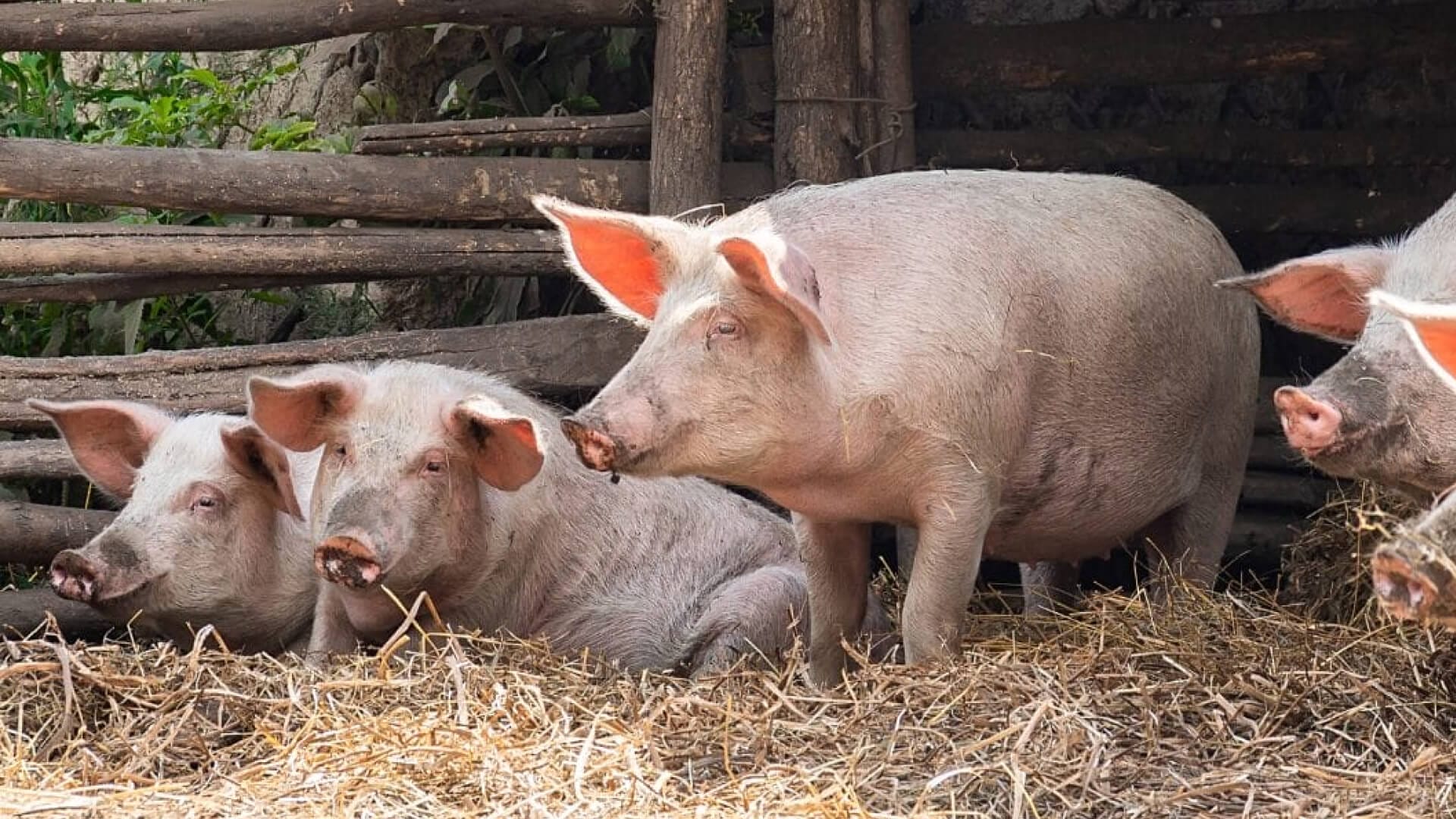“The original PigBoost project delivered meaningful change for smallholder pig farmers in Uganda. It gave them access to improved artificial insemination services and support from specialist veterinarians. Productivity and animal health outcomes improved, benefiting farming families and the wider pig production sector. Now, we’ve stepped up these positive outcomes by using elite pig genetics from PIC, which has improved the market value of production animals.”

Dr Tim Byrne
Managing Director, AbacusBio International
Key information
PigBoost¹, a project initiated in 2020, is being “powered up” to provide increased stability for Uganda’s smallholder pig farming sector.
After completion of the PigBoost project, a three-way collaboration was formed between global leader in pig genetics PIC* (Pig Improvement Company), Ugandan artificial insemination and pig veterinary service company Vetline, and AbacusBio. The collaboration was designed to provide economic stability for pig farmers, through improved productivity, animal health and welfare. Ultimately, it aims to address broader food production and safety issues in the pork supply chain, in order to deliver nutritious, healthy and safe food to the wider population.
This is being done via the use of PIC’s elite boar genetics and Vetline’s artificial insemination and veterinary services, underpinned by AbacusBio decision-support tool Dtreo.



Background: Pork production and consumption in Uganda
Uganda is among the largest per capita consumers of pork in sub-Saharan Africa and demand is growing year-on-year. Pork is efficient to produce compared to other protein sources and is well accepted by local consumers. However, on-farm productivity is low and demand consistently outstrips supply.
This scenario means the sector offers good opportunities, making pig farming one of the fast-growing livestock activities in Uganda. It provides cashflow for smallholder farmers, particularly those on the edges of large cities, such as the country’s capital Kampala (population 1.9 million). By focusing on cities’ edges, the initiative has the potential to positively impact Ugandan society at large, through improved food safety and pork quality.
How AbacusBio is adding value
AbacusBio’s cloud-based platform Dtreo gathers data in real time and seamlessly turns it into user-friendly information for pig farmers, veterinarians and extension services. In this way, more robust decisions can be made around animal management and breeding, improving:
- Genetic selection
- Animal performance
- Disease management,
- Animal market value, and
- Communication between all parties.
Project outcomes
The first inseminations with PIC boar semen were carried in July 2023. Key milestones at December 2024:
- Vetline has launched service packages for farmers, covering insemination, health monitoring and birth tracking. The aim is to grow the use of these packages, so more farmers access elite genetics and animal health support.
- 1555 inseminations using semen from PIC boars. Involved 1667 unique individual sows (from 2215 insemination attempts).
- Impacting 819 farms, across 43 districts.
- Of the number of farmers involved, 34% are female and 66% male
- About 110 inseminators engaged.
- 151 litters born from PIC semen.
- A total of 466 births and/or litters in total recorded in Dtreo.
- 1485 weight records taken from birth to slaughter age for PIC progeny. Weights also recorded for local boars’ progeny, to provide an accurate comparison.
- Farmers observed larger weaning weights, compared to local genetics, generating enthusiasm for the potential of genetics. More analysis of weight data is to come.
- A master’s student is working with inseminators to tag piglets and monitoring their health and growth.
- The project has established laboratory facilities and trained technicians for testing and analysing field samples, bolstering research and diagnostic capabilities.
- Research is linking the use of high-value genetics with better farming family incomes and more efficient resource usage. Initial findings suggest the use of superior genetics enables the production of more kilograms of pork, with less resource input.
Next steps
The team is gathering the weight data that will provide insights into how PIC boar progeny perform compared to local alternatives.
Vetline is working towards the programme being commercial viability. This will benefit local communities and enhance food security in Uganda.
More information
AbacusBio Dtreo – empowering data-driven decisions in agriculture
University of Edinburgh Roslin Institute article
UK Research and Innovation project abstract
- Original PigBoost partners: Roslin Institute (University of Edinburgh), Vetline and Makerere University. Support from: Kampala City Council, Uganda’s Ministry of Agriculture and National Animal Genetic Resource, and the UK Government’s Global Challenges Research Fund.
